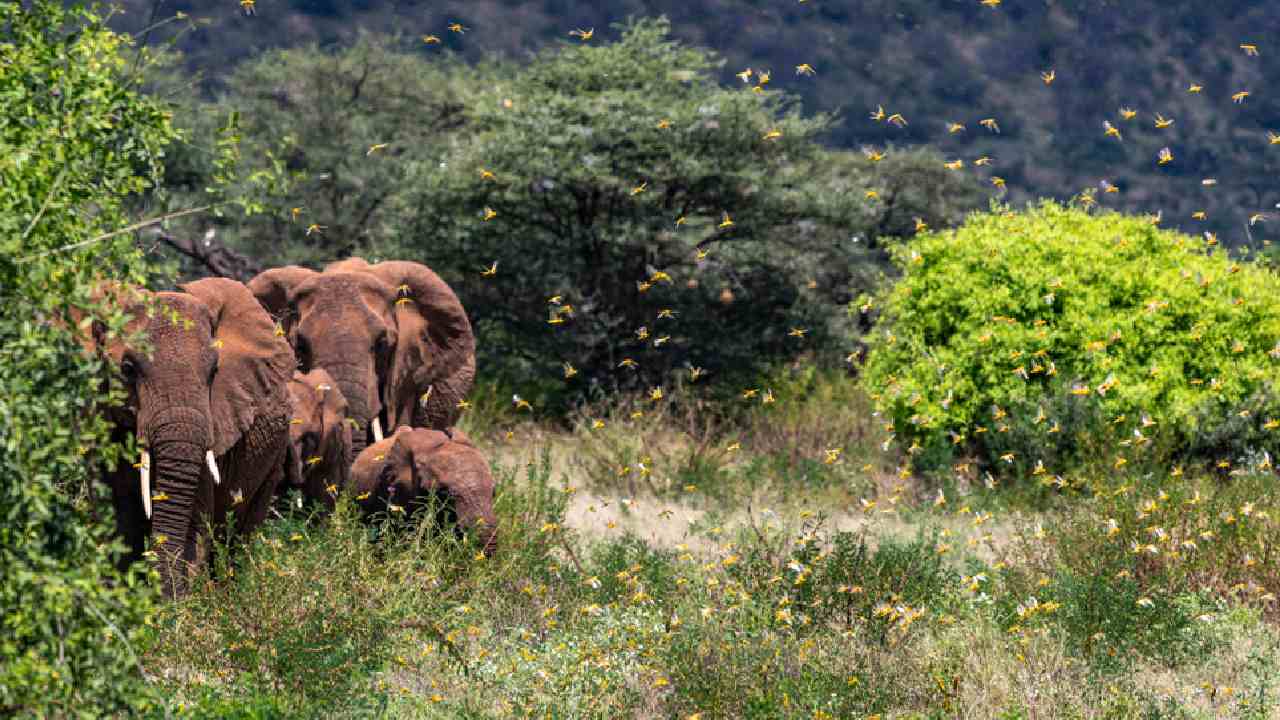The other outbreak engulfing eastern Africa

Coronavirus has continued to dominate the news cycle as governments around the world increase their efforts in limiting the spread.
However, another plague is threatening food, jobs and health on three continents.
Hundreds of billions of locusts are swarming through parts of East Africa, the Middle East and South-West Asia, devouring crops and bringing an unprecedented threat to food security in what the United Nations (UN) described as the worst infestations in decades.
The upsurge of the desert locusts could be traced back to 2018, when cyclones in the southern Arabian Peninsula – along with poor rains, drought and floods – provided favourable breeding conditions which allowed the undetected and uncontrolled breeding of three generations.
“It is these weather events which are creating the environment to facilitate the current locust outbreak,” said Head of the UN Office for the Coordination of Humanitarian Affairs Mark Lowcock.
“Unusually heavy rains and increase in the frequency in cyclones in the Indian Ocean have created favourable conditions for the locusts to breed.”
The first swarms started invading Yemen, Saudi Arabia and Iran in early 2019 and went on to breed and move to other countries including Kenya, Somalia, Ethiopia, Pakistan and India.
By early 2020, infestation in Kenya has reached its worst in 70 years with up to 200 billion locusts while Somalia and Ethiopia are experiencing their biggest outbreaks in a quarter of a century. The Food and Agriculture Organisation (FAO) warned that the number of locusts could expand 500 times by June.
Desert locust swarms could create a serious food crisis in East Africa.
It is the worst outbreak in decades.
Learn more 👉https://t.co/pKAnXLgc6P #Desertlocust #Locusts #foodsecurity pic.twitter.com/FEiFHSUxxw— FAO (@FAO) February 21, 2020
During plagues, the locust population could spread to 20 per cent of the Earth’s land and affect more than 65 per cent of the world’s poorest countries, according to the UN.
Speaking at UN Headquarters in February, Lowcock said immediate action is needed as the rainy season beginning in March may exacerbate the situation.
“In this region where there is so much suffering and so much vulnerability and fragility, we simply cannot afford another major shock,”Lowcock said.
“We do have a chance to nip this problem in the bud, but that’s not what we’re doing at the moment. We’re running out of time.
“There is a risk of a catastrophe. Perhaps we can prevent it; we have an obligation to try. Unless we act now, we’re unlikely to do so.”
The FAO has appealed for $138 million in funding to assist the countries in curbing the spread, but has amassed just $52 million as of mid-March.
